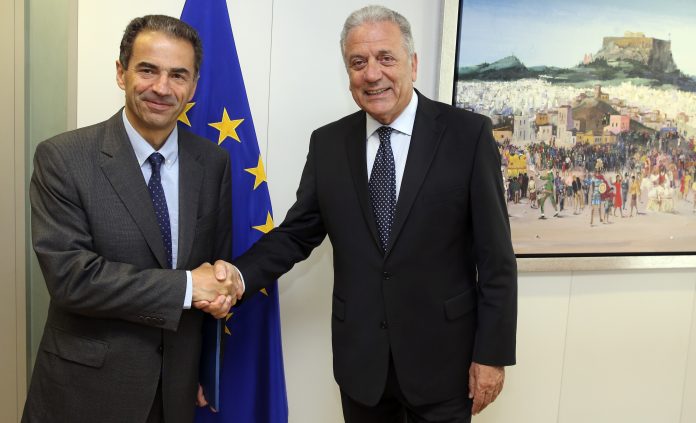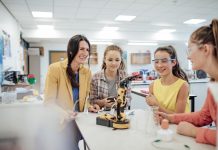
Open Access Government investigates Portugal’s current strategies for improving research and innovation post COVID-19, and finds that knowledge and education are key
Higher education institutions and education itself must be able to do more and better, and use the COVID-19 pandemic as an “opportunity to innovate,” stated the Minister of Science, Technology and Higher Education, Manuel Heitor in May 2020. This mindset is being maintained throughout the Portuguese Ministry for Science, Technology, and Higher Education as a means to come through stronger than ever before in recovery from the COVID-19 crisis.
There is a particularly strong focus on higher education and in promoting the return of students to face to face education. This is because the Ministry realises that without learning and further education, social and economic life will change drastically, and science and technology would therefore also be significantly set back. Minister Heitor stated, “if there was a sign of great modernity when adopting distance learning, now we also want it to give a sign of great confidence to the population in the resumption of face-to-face activities.” Moreover, it is important to note that the Minister also said that face-to-face education “can and must have some distance learning components”, at the opening of a summer school in July. The strategy towards higher education is that Portugal must use a balance of methods to thrive. “The objective is one: that teaching is in person. But we know that this objective must be fulfilled with a lot of responsibility and a lot of realism in light of the conditions that we are dealing with every week,” he added. It is vital to return to “normalcy” as soon as possible but to also adapt to whatever the “new normal” might be. A well-designed balance between face to face and online learning is paramount to helping students thrive in these new conditions.
Furthermore, to aid this return to education, the minister is encouraging all students who are now starting their academic year in person, to use on mass the Portuguese application Stayaway COVID, to detect potential exposures to people infected with COVID-19. “The start of the school year is a particularly important opportunity for the use of Stayaway COVID”, said Manuel Heitor, and using it is “an exercise in civic responsibility.”
Portugal is also trying to find ways to attract international students into the country with mobility programs. To maintain Portugal’s competitivity as somewhere with valued education institutions, conditions will be devised to guarantee the attraction of students from all over the world, reinforcing Portugal’s position in Europe and reducing their external dependence.
Skills 4 post-COVID – Skills for the future
The intentions outlined above have been reinforced by the 2020 Skills 4 post-COVID initiative, which aims to improve Portugal’s response to the challenges imposed by the disease, identifying the main constraints and opportunities that the pandemic has introduced in higher education activities and in its relationship with science, innovation and jobs. “The initiative aims at disseminating innovative teaching and learning practices adapted to a mixed and differentiated educational system at all levels of education, at establishing new forms of entry and participation in higher education, and at encouraging the attraction of international students providing “COVID free” condition,” the Embassy of Portugal, Washington D.C. highlights.
Manuel Heitor has also recently highlighted that the Portuguese scientific community has been “particularly mobilised at various levels.” “Until the vaccine, we have other processes – of therapy and diagnosis – which are essential for the mobilisation of the Portuguese scientific community, in international collaboration,” stated the Minister.
Higher Education, Research and Innovation in Portugal Perspectives for 2030
Portugal has set out a clear strategy to boost knowledge and innovation, together with skilled job creation and wellbeing, and most of all, to fully achieve European convergence by 2030. With this main goal of guaranteeing the convergent path with Europe, the country is launching initiatives to ensure a stable commitment to the production and application of scientific knowledge as the main driver for the development of the country and the building-up of networks of opportunity.
Three main targets are considered for Portugal to do this:
- Achieve a level of overall Research and Development (R&D) investment of 3% by 2030, with a relative share of 1/3 public and 2/3 business expenditure, corresponding to achieve an overall R&D investment of 1.8% of GDP by 2020 (while 1.3% in 2016).
- In 2016 there was only 35% of tertiary education graduates in the 30-34 years old age group, and the aim is to increase this to 40% by the end of 2020 and then to 50% by 2030.
- Achieve a European leadership level of digital skills by 2030 in association with internet access and usage, as well as market demand, business development and specialised skills development.
Setting a clear strategy towards these targets is important because Portugal, as well as other southern and peripheral European countries, have been recovering in the last few years from the recession and economic and budgetary problems that seriously affected the country in the period 2010-2015, with a major impact in the budgets allocated to Science, Technology (S&T), and higher education.
In the last 30 years, the internationally recognised scientific production of Portugal multiplied by more than 35 times, and the overall goal is to increase this further, solidifying Portugal’s place in a competitive Europe, fostering science, technology, research and innovation, ultimately through education.
The Minister reiterated the Government’s goal (originally outlined in the initiative “Higher Education, Research and Innovation in Portugal Perspectives for 2030,”) of reaching 60% of young people aged 20 in Higher Education by 2030. “The development of a country requires knowledge,” he stressed.
Open Access Government










